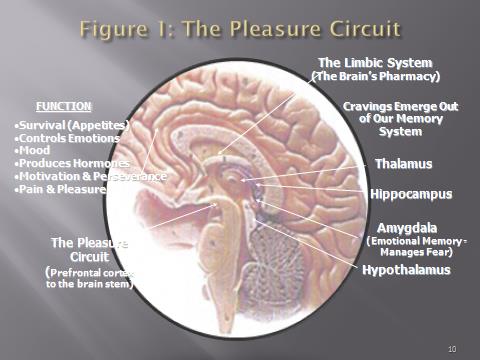UNDERSTANDING ADDICTION AS A BRAIN DISEASE
"A core concept evolving with scientific advances over the past decade is that drug addiction is a disease that develops over time as a result of the initially voluntary behaviour of using drugs (Drugs include alcohol).
![]() The consequence is virtually uncontrollable, compulsive drug (includes alcohol) craving, seeking and use that interferes with, if not destroys, an individuals functioning in the family and in society. This (Bio-Psycho-Social-Spiritual) condition demands formal treatment.
The consequence is virtually uncontrollable, compulsive drug (includes alcohol) craving, seeking and use that interferes with, if not destroys, an individuals functioning in the family and in society. This (Bio-Psycho-Social-Spiritual) condition demands formal treatment.
We do not yet know all the relevant mechanisms, but the evidence suggests that those long-lasting brain changes are responsible for the distortions of cognitive and emotional functioning that characterize addicts, particularly including the compulsion to use drugs that is the essence of addiction.
It is as if drugs have high-jacked the brain's natural motivational control circuits, resulting in drug use becoming the sole or at least the top, motivational priority for the individual." - ALAN I. LESHNER, MD in "Addiction as a Brain Disease"
The High-Jacked Brain

Recovery
Because addiction is a complex bio-behavioural disorder whose development and expression depend heavily on social context, addiction treatment inevitably has many different components. The symptoms of this brain disease go beyond simply using a lot of drugs/alcohol. Addiction has diverse medical, behavioural and social consequences that effect one's ability to function virtually in every life domain. Thus, the target outcome for treatment cannot be just reducing drug/alcohol use - it must be restoring yourself to fuller functioning in the family, at work and in society.
Recovery from an addiction involves the reversing of these biological, psychological and social processes. Just because addiction is a brain disease does not mean you are a hapless victim. In fact addiction, for the most part, is a created disease. Addiction begins with the voluntary use of drugs/alcohol (or involvement in other processes) and you are invited to participate in and take significant responsibility for your recovery.
You will be helped in identifying the issues and designing an Action Plan that will provide you the traction needed to move forward!




